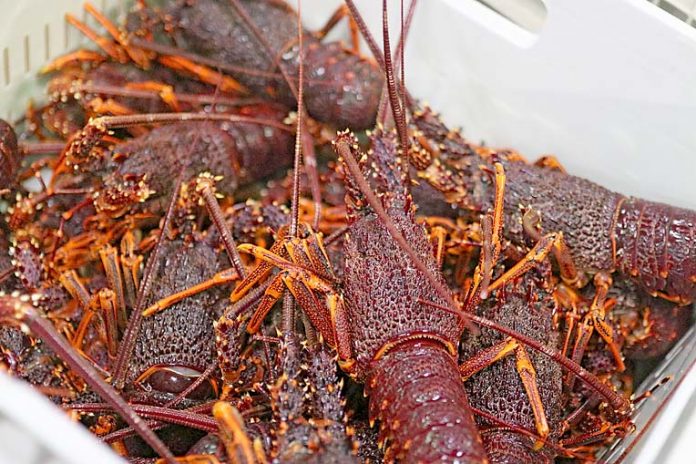SEVERAL major Limestone Coast industries are likely to be impacted by the escalating novel coronavirus, which is threatening to derail major exports flowing out of the region if the outbreak is not contained.
While rock lobster exports have come to a standstill, the export volatility is also fuelling concerns the trade crisis could impact, red meat, dairy and woodfibre exports.
These industries collectively underpin thousands of jobs across the region.
The novel coronavirus – now named Covid-19 – has killed more than 1100 people and infected 45,000-plus people worldwide.
Dairy Australia senior industry analyst Sofia Omstedt told The Border Watch yesterday it was too early to speculate how the global health crisis would affect Limestone Coast dairyfarmers and the processing sector.
While there not been any major impacts at this stage, she warned this may change if the situation was prolonged.
Describing the current situation as a is a “double-edge sword”, she said some Chinese consumers were stockpiling dairy products such as milk powder and infant formula due to the coronavirus impact.
“They are doing this just in case things get worse as well as advice from a medical professional – who is very active – telling Chinese residents that if that want to be well, then they need a health diet including dairy products,” Ms Comstedt said.
While this was boosting some exports, she said it was too early to predict the fall-out in the longer term.
“It is a little too soon to know the full impact,” the dairy industry expert said.
She revealed one third of the nation’s dairy product was exported – 30pc of this product flowed into China.
But she suggested low milk volumes in Australia may help shield dairyfarmers from any major impact.
Meanwhile, Port MacDonnell Professional Fishermen’s Association president Roger Cutting said the regional southern zone fishery remained at a standstill.
While the industry would ride through the turbulence, he said the industry did not know when exports might resume.
“Some of the fishermen have pulled their pots out of the water and are now sitting and waiting. It is all very quiet,” the veteran fishing leader said.
“We have to ride it out – there is nothing much else we can do.”
It is understood some exporters who had lobster left in their storage tanks have sold the lucrative seafood to the local market.
He said the uncaught quota left in the ocean equated to a significant amount of money to the sector, which underpinned economic activity along the South East coast.
According to industry sources, around 90 boats still have quota remaining.
A Rabobank agribusiness banking specialist has warned, the coronavirus outbreak is already having a severe impact on China’s food service and on-trade channels and this could become “more serious and longer-lasting” if the virus is not contained in the next six to eight weeks.
But the extent of the impact on Australia’s agricultural sector will be limited in the short-term and will depend on how quickly the virus is contained.
Rabobank specialist Tim Hunt said Covid-9 would “almost certainly” have a larger impact on food and beverage industries than the global SARS epidemic in 2003.
While a quick and effective containment of the virus could lead to a rapid bounce-back, he said the longer the virus not contained beyond March, the more extensive, sustained and structural the impact would be.
“There are likely to be both first and second-round impacts of coronavirus on the Australian agricultural sector,” Mr Hunt said.
He said with the first round was already being felt by any food and ag business relying heavily on the food service channel in China, particularly perishable goods.
“For example, rock lobster shipments to China have all but ceased in the last couple of weeks” while chilled meat shipments for food service are also a risk category given a lot of hot pot restaurants are closed at the moment.”
The red meat sector is expected to experience some short-term disruption given logistical disruption and reduced eating out by Chinese consumers.








